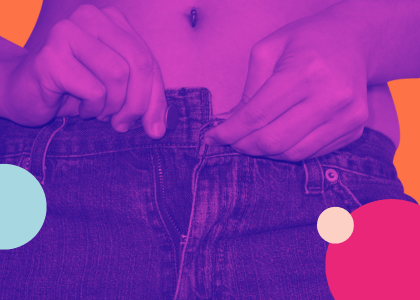
Have you ever taken a moment to consider just how expensive it can be to be a woman?
Now I’m not just talking about the extortionate Pink Tax, and the fact that we’re paying more for just about everything from covering our bits to freshening our pits. I’m also talking about the cash we are expected to dish out by virtue of the expectation that land on our heads simply because we are women.
Let’s start with our appearance. Whilst it may invoke a groan or eye roll, there is a general expectation for us to conform to certain beauty conventions. Whether we’re heading out for a day of work or play, we are expected to have our hair, make up, clothes and even nails up to a certain standard, or in simple terms, we are expected to objectively “look nice”.
The thing is, looking nice doesn’t come cheap. The costs of our maintenance – hair and nail appointments, make-up and clothes inevitably add up (especially when they are subject to the Pink Tax). According to research, women in the US spend around £300,000 in their lifetimes just on make-up, whilst women in the UK spend on average over £70,000 on our appearance over a lifetime.
And frustratingly these expectations (and costs) just continue to grow. In fact, many of the women I speak with through rainchq have discussed how they feel that things like getting their hair, nails and beauty treatments done aren’t as much a luxury as a necessity. The so called ‘grooming gap’ means that like it or not, if we want to experience certain privileges in our personal and professional lives, we are expected to look a certain way.
And with research to suggest that there is a ‘pretty privilege’ that ascribes greater value to those viewed as better looking, how we present ourselves matters and not just to our self esteem.
Despite this:
We are earning less than our male counterparts on average so have less income to play with
We’re more likely to live longer, and take career breaks over the course of our working lives
We are expected to adhere to certain beauty standards and look a certain way both in our personal and professional lives if we want better pay and progression
We are paying a premium for the products that will allow us to adhere to these standards. So isn’t a chunk of this additional cash potentially going right back into maintaining grooming standards?
Can someone please make it make sense?
Actually better still, how about we make it fair?
Tackling some of the gender finance gaps would be a great place to start.
What’s your view?



